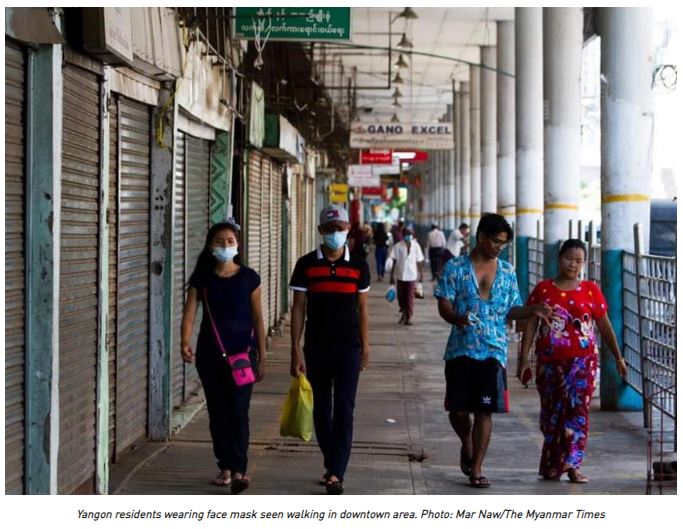Myanmar inflation declines amid falling demand
Domestic inflation fell to 8.3 percent during the month of May, softening as a result of declining demand among Myanmar households, according a recent World Bank report.
This is because consumers have cut back on their spending due to COVID-19, driving prices lower.
At the current level, inflation is at its lowest in six months and is expected to weigh on the annual rate of inflation for this year.
According to the World Bank, headline inflation has dropped from 9.5pc in December 2019 to 5.2pc year-on-year in April, as COVID-19 continued to suppress economic activity and slash demand.
Food inflation hit 4pc in April from 7.8pc in December, reflecting lower prices for rice, cooking oil, chicken, eggs, and vegetables. Non-food inflation dropped to 7.5pc in April from12.3pc in December, driven by low prices for clothing, alcoholic beverages, recreation and culture, fuel, and gold.
While core inflation, which excludes food and energy price, remained high at around 13pc in April, this is projected to moderate from July onward as the year-on-year effect of higher electricity tariff rates tapers off.
The lower spending levels and falling prices are expected ease pressure on overall inflation in fiscal 2019-20. The World Bank forecasts that inflation should settle at 7.5pc this fiscal year, down from 8.5pc the year before.
At the World Bank projected level of 7.5pc this year, inflation could be higher than the current Central Bank Rate of 7pc. The minimum bank deposit rate in Myanmar is 5pc, while the maximum secured lending rate is 10pc.
Source: https://www.mmtimes.com/news/myanmar-inflation-declines-amid-falling-demand.html


 English
English




